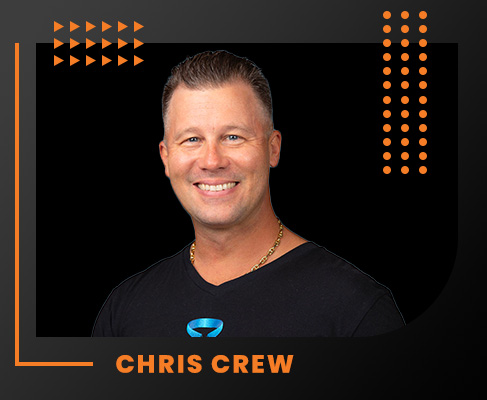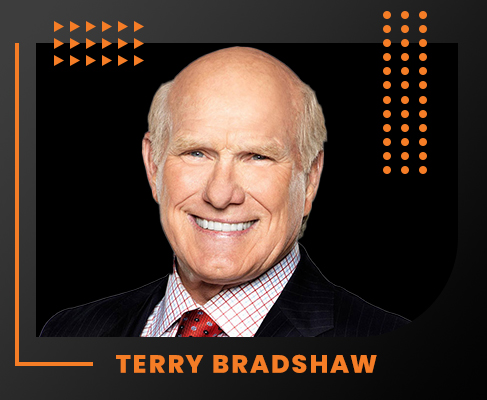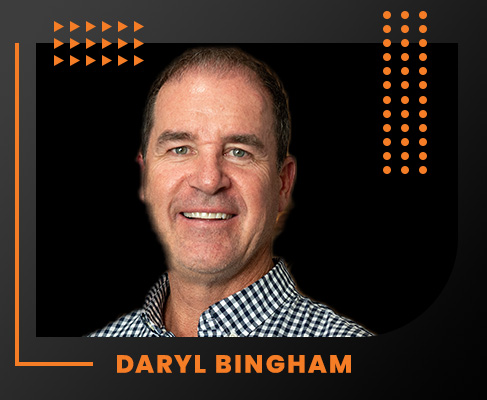Mike Branson is President of Global Air at Rheem Manufacturing, and is much more than that to our host, Chris Yano. In fact, if it wasn’t for Mike Branson, To The Point wouldn’t exist! Over a decade ago, before Chris started his own digital marketing company, he was working for another digital marketing company and wasn’t happy with how things were going. Mike spent time talking Chris through the situation, and encouraged him to make a move and believe in himself.
An engineer by trade, Mike has been with Rheem for over a decade in both the wholesale and distribution side of things. Now, he’s here to share his story and some incredible insight and wisdom about what contractors can do to succeed both now and in the years ahead.
An Early Introduction to the Trades
Mike’s father was an engineer as well, and like most engineers, thought he could do everything. Mike and his father did just about everything around the house together, and their many projects even ventured into the realm of plumbing, roofing, and HVAC. At the age of 5, his father decided to install air conditioning in their home. They went around to different wholesales, and finally found one that would sell the air conditioner to them.
Their home was built in the 60’s, so there wasn’t much roofing to utilize for the installation. Mike’s small size, however, made him perfect for helping get the ductwork installed and put an air handler in the ceiling. The installation was tough, and during the hot midwestern summer months to boot. Mike didn’t enjoy it, and put a career in heating and cooling at the top of the list he didn’t want to pursue when he grew up.
Mike went on to study engineering and serve in the Navy. During his time of service, he started focusing on products that moved heat. In the Navy, he worked on control systems for nuclear reactors, which in Mike’s words, “are basically just big water heaters”. He became passionate about heating and cooling. After the Navy, Mike worked on heating and cooling in automobiles, and then joined the HVAC industry, which he has been serving in for over 25 years.
What Makes a Successful Contractor?
From running ductwork at 5 years old to president of a global organization, Mike has seen a lot of highs, lows, and what it takes to be successful for contractors, manufacturers, distributors and more. He points out that there is a pretty low barrier to entry, but whether or not you’ll be successful is another story. You can be a successful entrepreneur who can’t even spell HVAC, or a superstar technician who is ready to take the next step and start your own business. The reality is, the trades doesn’t care where you came from. What matters is what you bring to the table. In his experience, Mike has seen that most often, those that are successful have incredible drive and initiative, as well as a real passion for their work.
Another key component Mike has recognized as a core similarity in successful contractors is that they tend to know what they know as well as what they don’t. With this understanding, they build a team and learn what they need to fill those gaps and grow. They also identify mentors, whether it’s a peer group, ACCA, or even the Rheem Pro Partner program. Being a part of one or more best practices groups both in and outside of your market is the best way to grow.
The Importance of Contractors in Brand Choice
While working on the distributor’s side, Mike has spent quite a bit of time with contractors in his different roles to help them succeed. He even considered becoming a contractor at one point! He has learned quite a bit about the many, many things that contractors have to know, and really does appreciate contractors. It’s his hope that he can provide value with that understanding to help them grow, which ropes into the Rheem Pro Partner program. The Pro Partner program is all about helping contractors become better each and every day.
If you’re a brand new contractor without any brand equity, the manufacturer you partner with does, and they spend millions and millions of dollars on that. Connecting to a partner that has a brand and will support you is a great thing.
While partnering with a trusted manufacturer such as Rheem or Ruud can certainly help due to the great brand recognition, Mike also recognizes that the contractor has the most influence into what brand the consumer chooses. Most of the time, homeowners are going to call the contractor they trust, and then also trust their decisions around which brand to purchase and install for them.
Private Label vs Branding and Product Mix
There’s always going to be a conversation around private label vs. branding, and what the ideal product mix looks like. Mike recognizes that there really isn’t a one-size fits all solution here. He’s seen successful companies that only offer one-stage equipment at minimum efficiency, and those that offer private label. There are lots of different segments to the market, and different people who serve those individual subsections of the market. Mike sees the value in approaching things differently, but encourages contractors to look at different markets to see if there are other opportunities for you to expand and grow and increase profitability in other ways.
In considering partnering with Rheem, for example, Mike points out that there is some great value in the partnership. Rheem focuses on great brand identity and visibility, even in retail. You’ll see Rheem products on the end caps while walking through Home Depot, Rheem marketing at NASCAR and other events, and that’s a big deal. Having a recognized and trusted brand to offer your customers can be the difference between making the deal.
Still, Mike points out, there’s nothing more powerful than the contractor brand itself. Rheem understands they have to earn contractor business every day, and they do so by offering the right products at the right price points as well as supporting contractors with the right programs and support they need for success. At the end of the day, you aren’t a franchise, and Mike cherises the that as well as the entire spectrum of contractors and the rainbow of strategies in the marketplace.
What Should Contractors Be Focusing on For the Future?
There are plenty of exciting things happening in the industry today, and lots to talk about in regards to the coming years. From energy efficiency standards to regulations, product advancements, technology, and consumer evolution, contractors have a lot to stay abreast of in order to stay ahead of the game. There are 5 things that Mike draws special attention to, however.
1. Technology and an Online Presence
Technology has allowed us to do new things, and the pandemic has accelerated our exposure and reliance on different ways to do business. How we advance in making lives easier for our consumers is what it’s all about, though. Some contractors might be afraid of selling online, but we should embrace it. Mike doesn’t expect contractors to sell condensers online for obvious reasons, but he feels that engaging on social media and getting that card swipe handled virtually is the way to go. Why not allow your customers to connect with you the way they want to and make the purchasing experience as simple as possible? By building trust with your social media interaction and having the right web presence, there’s nothing preventing you from allowing your customers to schedule an appointment and put down a deposit right away. You can start a customer relationship online before you ever step foot in the door by providing value, and build on that foundation to create a lasting relationship with your customers.
There’s more to technology than changing how we market and secure lead generation, of course. Manufacturers and contractors and finding new ways to keep tabs on the health of installed products such as water heaters, furnaces, air conditioners and more through connectivity functionality. Smart home features are becoming more and more standard, and there’s a lot of evolution happening in what customers expect in products today. The good news is that you don’t have to be a huge company to stay up to speed. In fact, smaller contractors may be able to pivot and make changes faster. Getting integrated, chasing technology, and following customer trends is how you’re going to stay ahead of the game.
2. Leasing
Another thing that is evolving and will continue to evolve is leasing in the trades. There are different ways for homeowners to invest in their heating and cooling, and that’s great. Mike first encountered leasing with water heaters during some market trials in Ontario, and has seen leasing programs expand into HVAC through different service providers in the U.S. who are piloting programs. It’s all to help the homeowner not just with how they pay, but what they’re paying for. Homeowners really just want to pay for comfort, and keeping that in mind is best for your customers whether it’s through financing, paying up front, leasing, or some other combination thereof.
3. Customer Expectations
Technology is enabling both large and small contractors and distributors to do new things that allow them to leverage and grow more quickly. It’s also leading to the ability to evolve how you meet the rising expectations of your customers. It’s no longer enough to have an answering machine and a few people answering the phones. Today’s consumer expects to be able to have a chat experience online, to connect with you quickly, and to have an experience that is tailored to their specific needs. There are all kinds of different tools and strategies whether it’s in e-commerce, tech support, or virtual interaction with your customers. Mike recommends taking a “fast-fail” approach. Try something new, make tweaks as you go, and if it doesn’t work, that’s fine. But you have to do something to evolve along with your customers, or they’ll likely leave you behind.
4. Regulation Changes
There are a few regulation changes Mike recommends preparing for. The first is the National Energy Efficiency Standard changes happening in January 2023. The past few changes have been on the manufacturer side of things. The upcoming changes will be on both the manufacturing date as well the installation date. There are also regional standards that will be changing. No matter who you are buying from, you need to understand that changes and products that will be heading your way. There are some cool new products as a result, too! New compressors, new inverter technology, and new heat exchanger technologies are in the near future.
A bit further down the road (Mike anticipates around 2025), there will be a shift towards the low global warming potential (low-GWP) refrigerants. If you’ve been in the industry for a while, you’ll remember the r-22 to r-410a transition. This will be like that, but on steroids. There will be some potential safety concerns, as low-GWP solutions are mildly flammable. There also won’t be a single solution. Different manufacturers are coming up with different refrigerant solutions, so staying up to speed with all the different options is going to be a necessity. It’s probably going to look more like the refrigeration industry, with dozens of solutions for different applications. In the end, we may only end up with a few common solutions, but that will evolve as well. Mike’s solution? Education, education, education. Rely on manufacturers and your distributor partner to keep you educated, and take advantage of their support.
5. Succession Planning
Perhaps a bit further down the road, Mike also recommends that all contractors be doing succession planning. You have to set yourself up whether you plan to pass on your business to a family, an employee, to PE or another group. You’ve worked hard and built something, so build it to be sure you can maximize the return on it as you deserve to. After all, you’re going to have to leave one way or another; we aren’t immortal. What’s your exit strategy?
Giving Back and Looking Ahead
Mike is passionate about the trades, and equally passionate about giving back. Rheem understands the importance of giving back as well, and has a global initiative called Heart of Comfort aimed at helping people, employees and their families, and the communities where we work. It’s helping supplier partners when they need it, partnering with a Habitat for Humanity house, a local Red Cross chapter, or even helping out with the many storms over the last few years. There is also a large community of veterans inside Rheem that support each other veterans outside of the company, along with a corporate partnership that matches up veterans with active-duty members to mentor them as they re-enter the workforce.
If you want to learn even more about what’s headed our way in the HVAC industry, you simply can’t miss out on attending the Pro Partner Conference. Chris, Tall Paul, and Mike will all be there at the MGM Grand next year on March 9th and 10th. It doesn’t matter if you’re a Pro Partner or not, this is a great chance to shake hands, gain some incredible industry insight, and get excited for the future. Book your spot today, and we’ll see you there!


